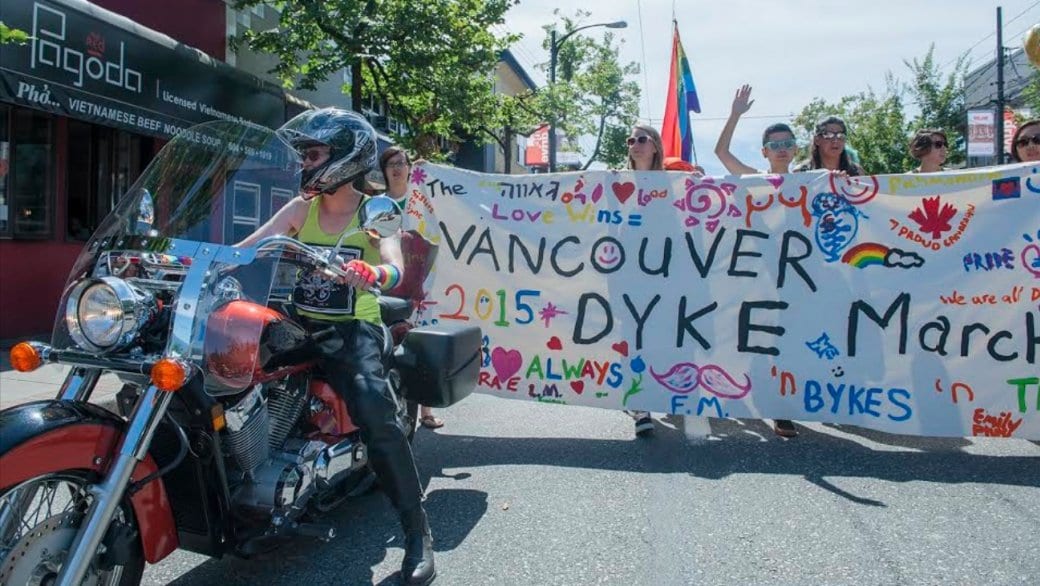Vancouver’s Dyke March is once again struggling to find new board members to ensure the annual women’s Pride event survives.
The president of the Vancouver Dyke March and Festival Society is calling on community members to run for positions on its board of directors at the annual general meeting on Saturday, April 9.
“We only have one person going forward and that’s myself,” Catherine Mateo says. “Right now we’re a board of two and the other board member is moving away.”
Mateo is hoping to fill all seven available board positions.
“The more board members we have, the less time people have to spend,” she says. “We can do this.”
She says board members generally put in about two to three hours a month to keep the event alive. “We’re looking for a treasurer and that’s a really kind of important role. We are also looking for a volunteer coordinator and entertainment, and just people to help out,” she says.
Despite its popularity, Vancouver’s Dyke March has struggled for years to maintain a consistent board.
“The situation is that either we don’t have enough board members, or we have a small number of board members who work for a year, two or three and then they burn out and move on to other projects. So it’s a real problem with sustainability for the organization,” Mateo says.
“Last year we had a bunch of people who also worked for other organizations and they realized, come Pride time, there’s all this other stuff they had to do and just didn’t have the time,” she notes.
Toronto’s Dyke March, in contrast, does not continually struggle to find organizers.
“We’re a lot more grassroots,” Mateo suggests. “While we partner with Vancouver Pride, their board is not our board and there’s not a lot of intermingling.”
“It seems like the Dyke March over in Toronto has closer connections to giant Pride organizations, whereas over here we’re just this tiny society,” she explains. “The intention was to provide that kind of grassroots unity effort to have our own march.”
Mateo is adamant that Vancouver’s Dyke March remain grassroots, but she would like it to be a bit more organized and consistent.
“There’s no chance the march is getting cancelled,” she says, “but the festival afterwards — that might potentially not happen if we don’t fill the board seats.”
Since the Dyke March and Festival’s resurrection in 2004, the post-march festival in either Grandview or Victoria Park has been a key component of the celebration of queer women’s space.
“So it’s something we also don’t want to lose,” Mateo says.
“I don’t want to sound like I’m holding the community hostage, but at the same time the reality is that two or three people can’t do it. They might be able to struggle through it for a year but that’s unsustainable,” she says.
Mateo says the Dyke March’s financial situation will also be discussed at the April 9 meeting. “I’m going to bring the financials for the last decade or so, just so we can compare how much funding we got, what worked and what didn’t, and just talk about fundraising options and things like that,” she says.
The march has had some successful fundraisers over the years, she says, but it’s time to take “a more sustainable look at it and start building relationships with other organizations to make it more financially sustainable.”
Vancouver Dyke March
Annual general meeting
Saturday, April 9, 2016, 1–4pm
Watari Counselling and Support Services Society,
678 E Hastings Street, suite 200
facebook.com/events/698175366989029/

 Why you can trust Xtra
Why you can trust Xtra


